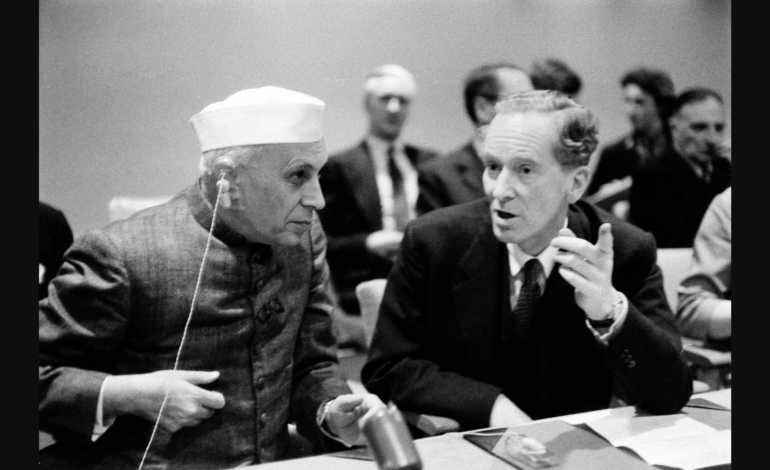
From Nehru’s blunder to today’s missed seat: India still paying the price for lost opportunities
By Dr. Avi Verma
Few decisions have defined India’s global position as profoundly as Prime Minister Jawaharlal Nehru’s choice in the early 1950s to decline informal offers from both the United States and the Soviet Union — offers that could have secured India a permanent seat at the United Nations Security Council (UNSC). What Nehru viewed as a principled stand for Asian solidarity has, in hindsight, become one of independent India’s greatest diplomatic blunders.
A seat India could have had
In the post–World War II world order, India stood uniquely poised to play a leading role in global governance. Yet when the question arose whether India should replace the Republic of China (Taiwan) on the Security Council, Nehru refused. He insisted that the newly established People’s Republic of China (PRC) rightfully represented Asia — and that India should not appear as a rival power.
That decision proved tragically short-sighted. By supporting China’s claim, Nehru surrendered India’s best opportunity for a permanent UNSC seat and empowered a neighbor that would soon turn aggressive — first on the battlefield in 1962 and now through persistent diplomatic obstruction. The very China Nehru championed today wields its veto to block India’s legitimate bid for permanent membership.
The legacy of misplaced idealism
Nehru’s foreign policy, steeped in idealism — non-alignment, Asian unity, and moral diplomacy — often lacked strategic realism. His missteps on the UNSC, his handling of Article 370, and his failure to reclaim Pakistan-occupied Kashmir (PoK) share a common theme: sacrificing long-term national interest at the altar of moral symbolism.
When history offered India a chance to shape the global order, we chose posture over power. Seven decades later, India — the world’s largest democracy and a rising economic powerhouse — still waits outside the chamber where global power is decided.
India’s renewed push and the roadblocks ahead
Since the 1990s, India has worked to reverse this historic setback. Aligning with Japan, Germany, and Brazil as part of the G4 coalition, and the L.69 group of developing nations, New Delhi has pressed for UN reforms to reflect 21st-century realities. Successive governments have built strong support among the P5 — with the U.S., U.K., France, and Russia openly backing India’s claim. Yet China’s opposition remains the single largest obstacle.
Beyond Beijing’s veto, members of the “Coffee Club” — including Pakistan, Italy, and Argentina — continue to block expansion of permanent membership. Even within reform debates, disagreements over veto power stall progress, delaying justice for nations like India that have earned their place through merit and contribution.
Why India deserves its place now
India’s claim is undeniable. It is the world’s most populous democracy, a responsible nuclear power, one of the largest contributors to UN peacekeeping forces, and a consistent voice for the Global South. Excluding India undermines the UN’s very claim to be democratic, representative, and relevant.
A Security Council without India is not just incomplete — it is outdated.
A lesson from history
Nehru’s 1950s refusal may have been born of idealism, but global leadership demands vision anchored in realism. The cost of ignoring that balance has been decades of exclusion, diplomatic frustration, and lost influence.
As the world transitions to a multipolar order, India’s rightful place at the global high table can no longer be delayed. Yet, the road to that seat is still shadowed by the legacy of one man’s misjudgment — when Nehru’s misplaced idealism became the nation’s enduring burden.
“It is time for the world to correct history and give India its rightful seat at the UNSC.”
— Dr. Avi Verma